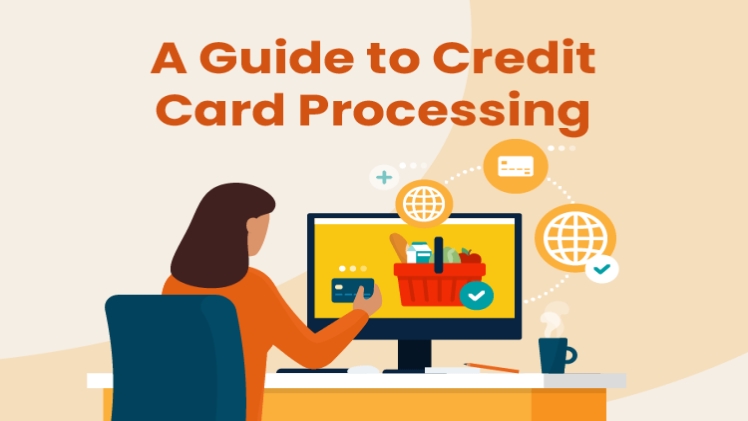Having an effective way to collect and process payments from clients is one of the key functions of a business, irrespective of the type or its size. With the numerous options available for payment processing services, business owners need to be familiar with the many methods accessible to them.
One of these methods is merchant processing. This refers to the capability of merchants to accept transaction payments via secure channels. The payments include debit cards, credit cards, e-checks, and ACH transactions.
How Does Merchant Processing Work?
Accepting credit cards from your clients is one of the many ways your business can receive payment. So, to get started, you need to choose a credit card processing company. Credit card processors are important partners beyond the main payment processing services, making it an important business decision.
To understand how merchant processing works, you need to know the different elements involved and their respective duties. Here is a detailed description of the roles played by each involved party.
- A cardholder: owns a debit or credit card from a bank, uses the merchant accounts to make payment.
- A merchant accepts card payments.
- A merchant bank creates and maintains merchant accounts.
- Payment processors are firms that process debit and credit card transactions.
- Issuing banks are financial entities that provide debit and credit cards to cardholders.
- Card associations include MasterCard, Visa, American Express, and Discover.
Merchant processing works in three processes: authorization, settlement, and funding. The cardholder gives the card to the merchant in exchange for products or services. The merchant will then send a request for payment authorization to their processor. The payment processor will submit the transaction to the card association. The authorization request is made to the issuing bank, whereby the issuing bank will approve or decline the transaction. A transaction can be declined due to available credit or insufficient funds if the merchant accounts have expired or are closed.
The issuing bank will resend the approval or denial status along the line to the card association.
Understanding the Basic Types of Fees
If you take payments by credit card, you will be subject to various fees. Each merchant company creates a standard fee that the bank charges once the card is utilized. Typically, these are the percentage of the sale and might include a per payment fee. Apart from these charges, the credit service provider processing your credit card payments will charge some small fees too. These are the fees you will need to pay once you accept credit card payments. Some of these charges include flat rates, interchange fees, and tiered fees.
Note that these models are likely the same: they offer different advantages that might work better for some consumers and less for others.
How Does Tiered Pricing Fit In?
Tiered pricing is a common form of credit card merchant charges. This is where the merchant simplifies the rates based on three stages. They include qualified, mid-qualified and non-qualified. The qualified rate comes with the lowest rate since it is deemed the safest model. Generally, you will get this rate once the card is in-hand and swiped or when the card is a reward credit card.
Mid-qualified rates tend to be costly than the qualified rates but cheaper than the non-qualified rates. A good example of a qualified rate is where a web payment, whereby a credit card number was manually typed.
Lastly, non-qualified rates are expensive since they include expensive and risky transactions like those unaccepted transactions in person or from credit cards that provide rewards for the clients. This model is ideal for high-risk merchant accounts.
It greatly depends on the type of model that fits your business regarding merchant processing fees. So, if you are getting started and have few credit card transactions, you should opt for the flat-rate fee. You will not have to worry about making the monthly payment.
However, if you want to get a predictable merchant statement every month, then tiered pricing will work for you. It will help you predict future business expenses. If you intend to deal with complicated statements that might be hard to predict, the interchange fee is ideal as it can help you save money.
Conclusion
The merchant processing industry is complex and wide-ranging. However, that does not mean you can’t find the best solution for your company. You need to narrow down your merchant service requirements and preferences and explore each firm’s features and price. This will help you find the best credit card processing company.
However, it is important to note that, with the companies, processes, and products that comprise merchant services, there is enough room in the industry for uncertainty and confusion. So, ask questions, make an informed decision and keep searching for the merchant service provider that matches your expectations.

